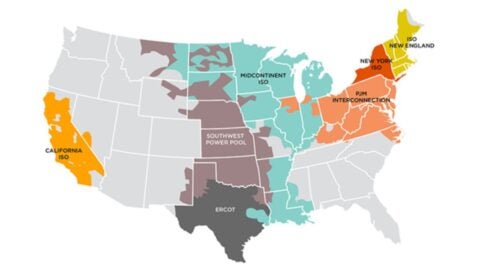What is the IPCC, anyway?
Reports about the new 2007 IPCC assessment on climate change have been all over the news. The findings are sobering – the globe is warming largely because of human activities, the effects are already being felt, and if we don’t curb greenhouse gas pollution soon the consequences could be catastrophic.
But some folks are not so sure about this IPCC thing. They want to know: “What is the IPCC anyway, and why should I trust what they have to say?” Our good friends at the Wall Street Journal tell us not to trust the IPCC, it’s written by a bunch of “policymakers.” (See the editorial.)
Not so fast. Here’s what the IPCC really is.
IPCC stands for the Intergovernmental Panel on Climate Change. It was established in 1988 by the World Meteorological Organization and the United Nations Environment Programme. It is open to all members of these organizations, including the United States. IPCC assessments take 5 or 6 years to produce. The 2007 report is their fourth assessment. The last one was released in 2001.
The summary released last week is actually the first of three reports. This one, by “Working Group 1,” reviews the best available scientific information about the climate system.
Here’s why you should take the report seriously:
- The report is not about policy or politics – it’s just about the science. In fact, IPCC is expressly barred from making policy recommendations.
- It was prepared by more than 2,000 scientists from all over the world working together for years. The conclusions were reached by a consensus of all scientists involved. There isn’t a minority or dissenting report.
- After the scientists reached consensus, their assessment was subjected to extensive review, by hundreds of independent scientists as well as all the sponsoring governments. The report could not be released until all governments, including the United States, signed off.
- If anything, IPCC assessments are conservative. One reason is the requirement that all the scientists involved reach consensus and all the governments sign off. Another is the time it takes to produce. This latest assessment was only based on scientific studies completed before January 2006, so it did not include the important new findings of 2006. These include studies documenting accelerated melting of the Greenland ice sheet and studies indicating that sea levels will rise even higher than previously thought. So when the IPCC says there is a 90 percent probability that global warming is caused by human activity, they are not exaggerating. In fact, it’s on the low side.
- Finally, the IPCC assessment team was led by Dr. Susan Solomon of the National Oceanic and Atmospheric Administration. I know Susan; she is a world-class scientist who insists on the highest standards. She’s also a winner of the U.S. National Medal of Science. Her agenda is science and only science – there is no politics in her work, period.
So the IPCC isn’t a conference, nor is it the opinion of a group of hand-picked scientists with an axe to grind. And it isn’t some international cabal out to get the United States. We are a member nation of the IPCC and our government has signed off on what the Bush administration called a “landmark” report (see the administration press release).
This document is for real and we ignore it at our own peril.













2 Comments
I second Bill Chameides’ comments. One of the things I tell my students is to read the IPCC reports and judge for themselves, rather than relying on opinions of others such as those expressed in the WSJ editorial. The latest IPCC climate science summary report (see http://www.ipcc.ch/SPM2feb07.pdf) is succinct and to the point.
There will always be uncertainties associated with our understanding of aspects of the climate system. But this is not a reason to dismiss the IPCC report. We act in the face of uncertain knowledge all the time, and the latest IPCC report will hopefully galvanize us to take action in spite of the uncertainties that remain. Once and for all, we absolutely have to come to terms with the potentially serious long-term consequences of our short-term actions with regards to climate change.
Isn’t Dr. Susan Soloman the individual whom suggested that any scientist opposed to her theory of climate change loose their license/accreditation?
Editor’s note: Dr. Susan Solomon (note spelling) said no such thing. Dr. Solomon is one of the most respected scientists in the country – a recipient of the National Medal of Science. The fact that the globe is warming as a result of human activities is also not “her theory.” In addition to the IPCC, it has been confirmed by the U.S. National Academy of Science, the American Meteorological Society, and on down the line.